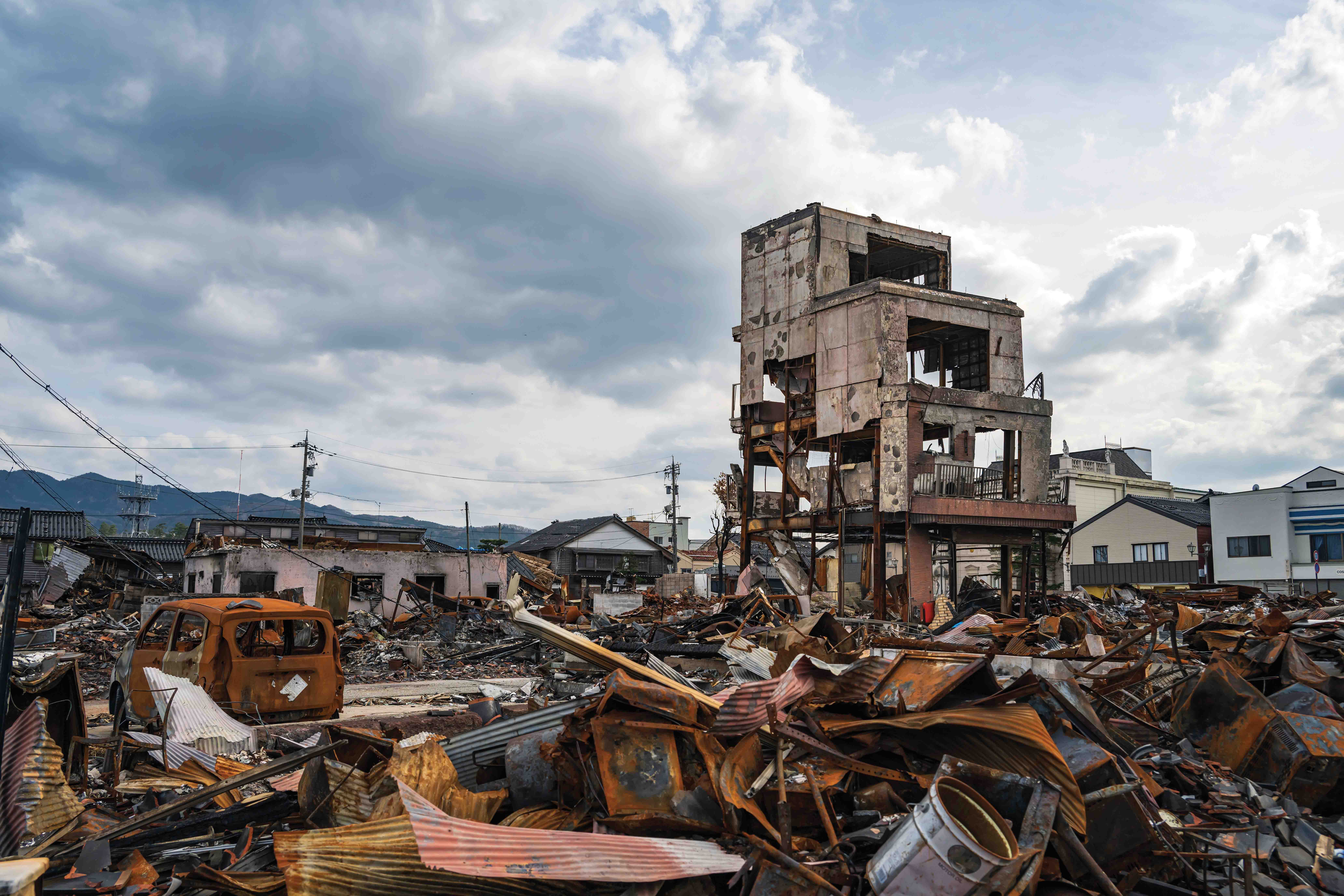Discoveries
More storiesUncovering the secrets of a devastating earthquake

On 1 January 2024, a devastating magnitude-7.6 earthquake struck the Noto Peninsula in Japan. The earthquake caused severe shaking, a tsunami and landslides, which killed almost 300 people and damaged over 46,000 homes. It was the deadliest earthquake in Japan since the Great East Japan Earthquake in 2011.
Earthquakes are generally caused by abrupt, rapid movements of pieces of the Earth’s crust along fractures known as faults. Researchers working with Assoc Prof Wei Shengji of NTU’s Asian School of the Environment and Earth Observatory of Singapore showed that the Noto earthquake started unexpectedly in a zone that was thought to have limited capability of initiating a powerful earthquake.
From their analysis of satellite and seismic sensor data, the scientists discovered that the earthquake started from an unusually slow movement along a fault. The slow movement was likely due to fluids in the fault and the heterogenous composition of the faults.
This type of earthquake presents a challenge for current earthquake early warning systems, which are less likely to pick up signals from the slow movement to trigger alerts for large earthquakes.
The findings contribute to an in-depth understanding of how earthquakes occur and highlight the importance of analysing multiple datasets to estimate seismic hazards. The research may also aid the development of more accurate tools for seismic and tsunami hazard assessment.
The discovery was reported in “Slow rupture in a fluid-rich fault zone initiated the 2024 Mw 7.5 Noto earthquake” in Science(2024), DOI: 10.1126/science.ado5143.
The article appeared first in NTU's research & innovation magazine Pushing Frontiers (issue #24, October 2024).
- Earth Sciences & Engineering
- Natural Sciences
- Discoveries

Research news releases
More news releasesIn the news
Featured videos
More videosPushing Frontiers
Past IssuesFeatured research
Transforming research into sustainable solutions
Mapping the structure of a viral enzyme
Catching electrons while they are still hot
Space radars show mountain moved by nuclear tests
Lost crater found at last in Laos
Coral chronicles the Indian Ocean’s ups and downs
Overcoming a flaw of terahertz radiation
Rapidly rising seas could swamp mangroves
Hormone-like substances could slow Parkinson’s disease
Contact us
Managing Editor: Dr Daphne Ng
If you would like to share research stories, comments or views, please contact us at [email protected].














/enri-thumbnails/careeropportunities1f0caf1c-a12d-479c-be7c-3c04e085c617.tmb-mega-menu.jpg?Culture=en&sfvrsn=d7261e3b_1)

/cradle-thumbnails/research-capabilities1516d0ba63aa44f0b4ee77a8c05263b2.tmb-mega-menu.jpg?Culture=en&sfvrsn=1bc94f8_1)

7e6fdc03-9018-4d08-9a98-8a21acbc37ba.tmb-mega-menu.jpg?Culture=en&sfvrsn=7deaf618_1)














.tmb-listing.jpg?Culture=en&sfvrsn=83fa0b1d_1)


-and-professor-hu-xiao-from-ntu-singapore.tmb-listing.jpg?Culture=en&sfvrsn=d0bcffec_1)
























